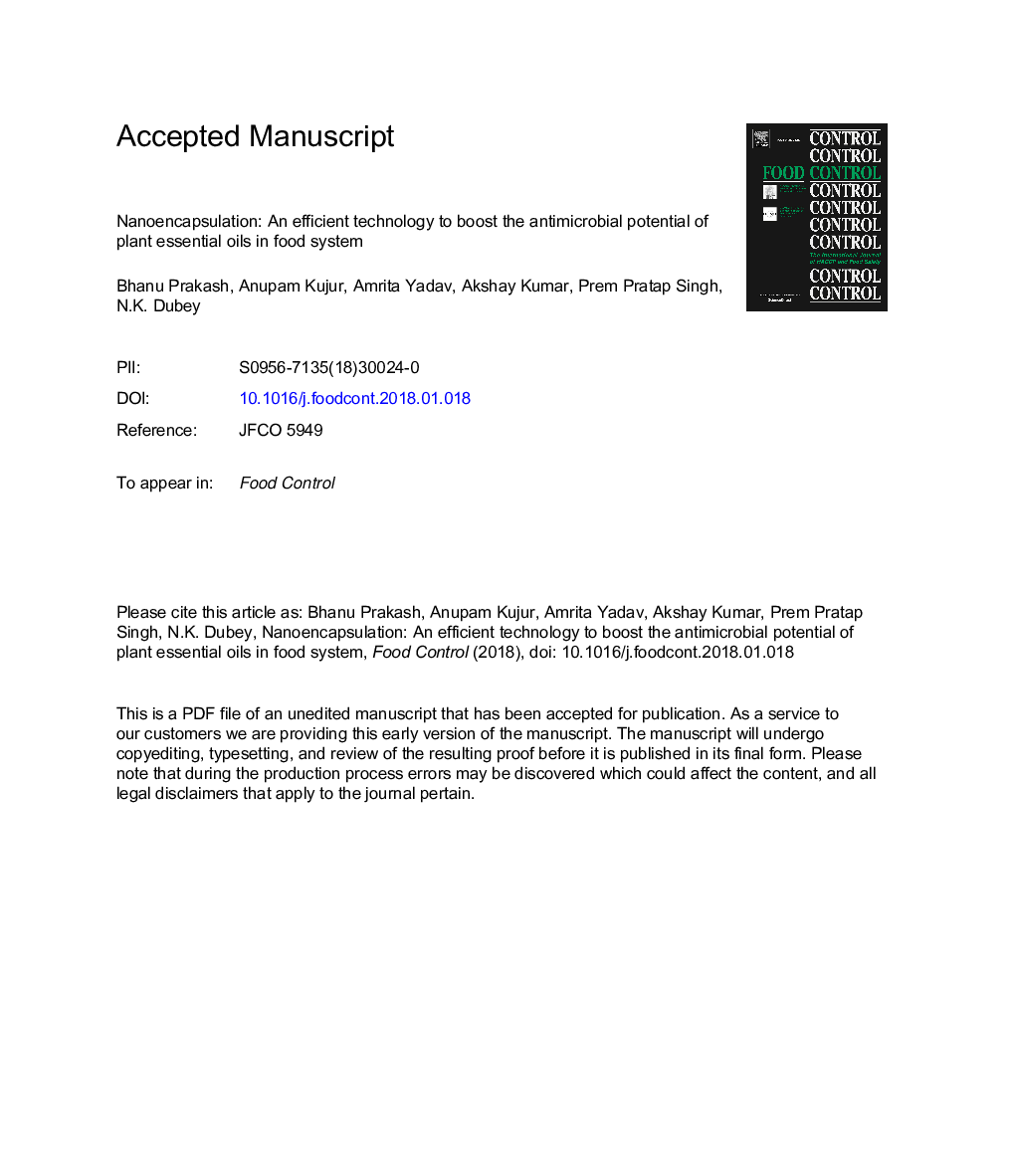| Article ID | Journal | Published Year | Pages | File Type |
|---|---|---|---|---|
| 8887945 | Food Control | 2018 | 39 Pages |
Abstract
Plant essential oils (EOs) possesses remarkable antimicrobial efficacy and therefore have great potential as an alternative of health hazardous synthetic preservatives. In spite of marvellous efficacy, their application yet not widely used by the food industries due to some of the major intrinsic obstacles viz., low water solubility, bioavailability, volatility and stability in the food system. The recent advancement in nanotechnology has potential to address these existing obstacles of EOs as preservatives in the food system. The applications of nanomaterials as a carrier agent of EOs recently gain momentum of interest by the food industries to improve their shelf-life and preservatives efficacy at low doses. Nanoemulsions, microemulsions, solid-lipid nanoparticles and liposomes are some of the currently used encapsulation strategies to encapsulate plant bioactive compounds. In this review, we explored the potential application of nanoencapsulated plant EOs as novel source of food preservatives. In addition, the prospects, existing limitations and future research direction for their commercialization are also discussed.
Related Topics
Life Sciences
Agricultural and Biological Sciences
Food Science
Authors
Bhanu Prakash, Anupam Kujur, Amrita Yadav, Akshay Kumar, Prem Pratap Singh, N.K. Dubey,
